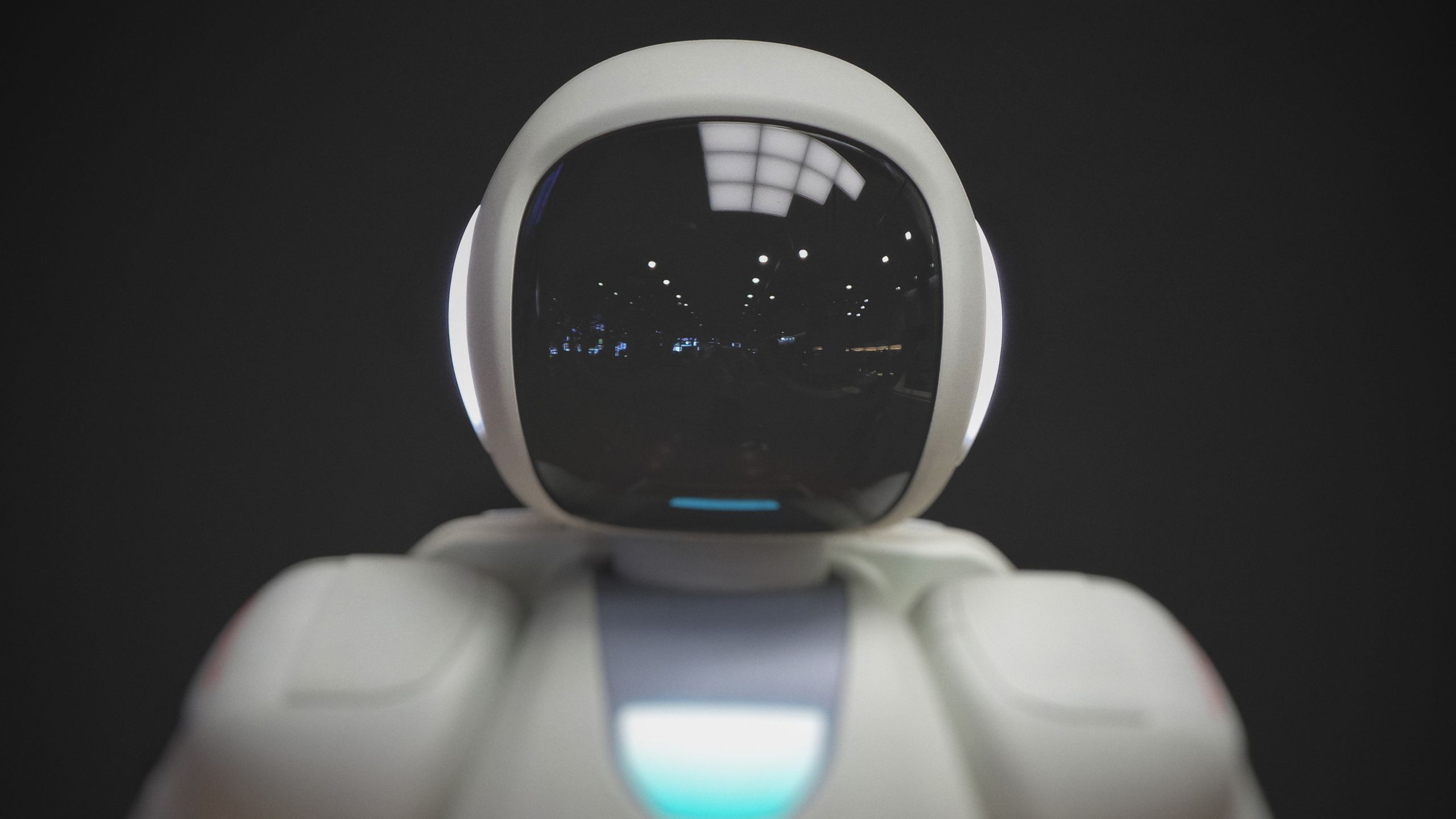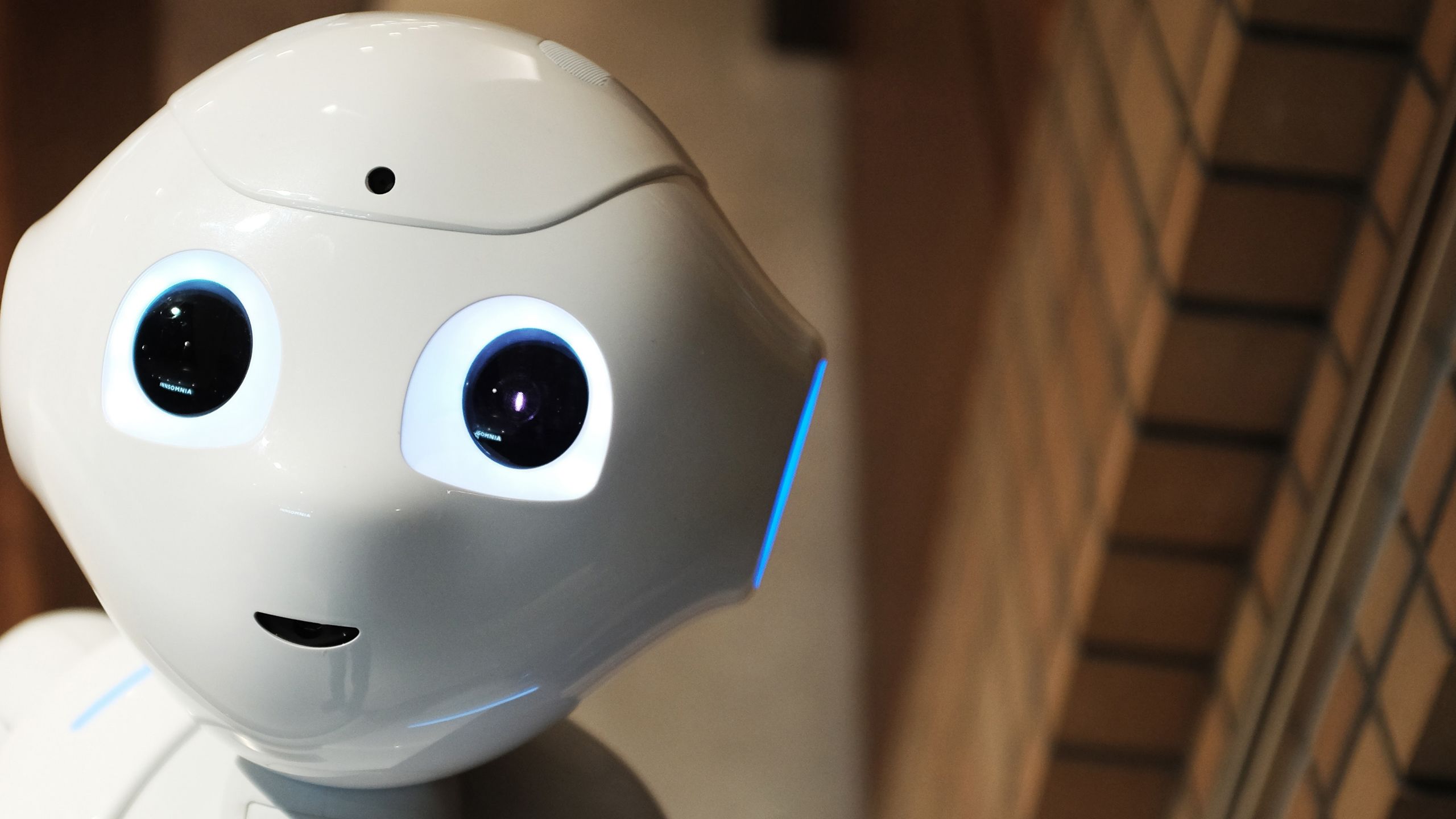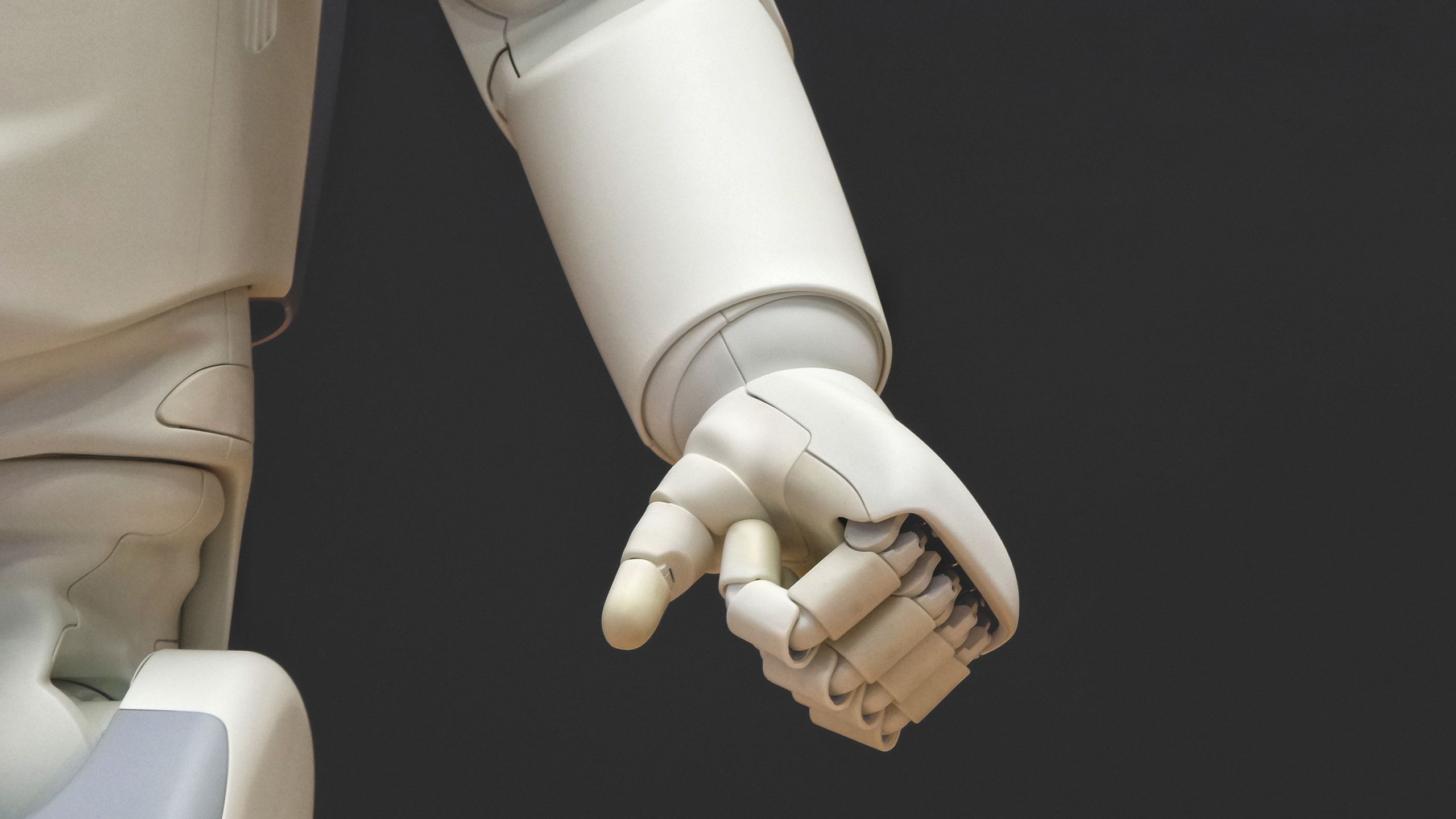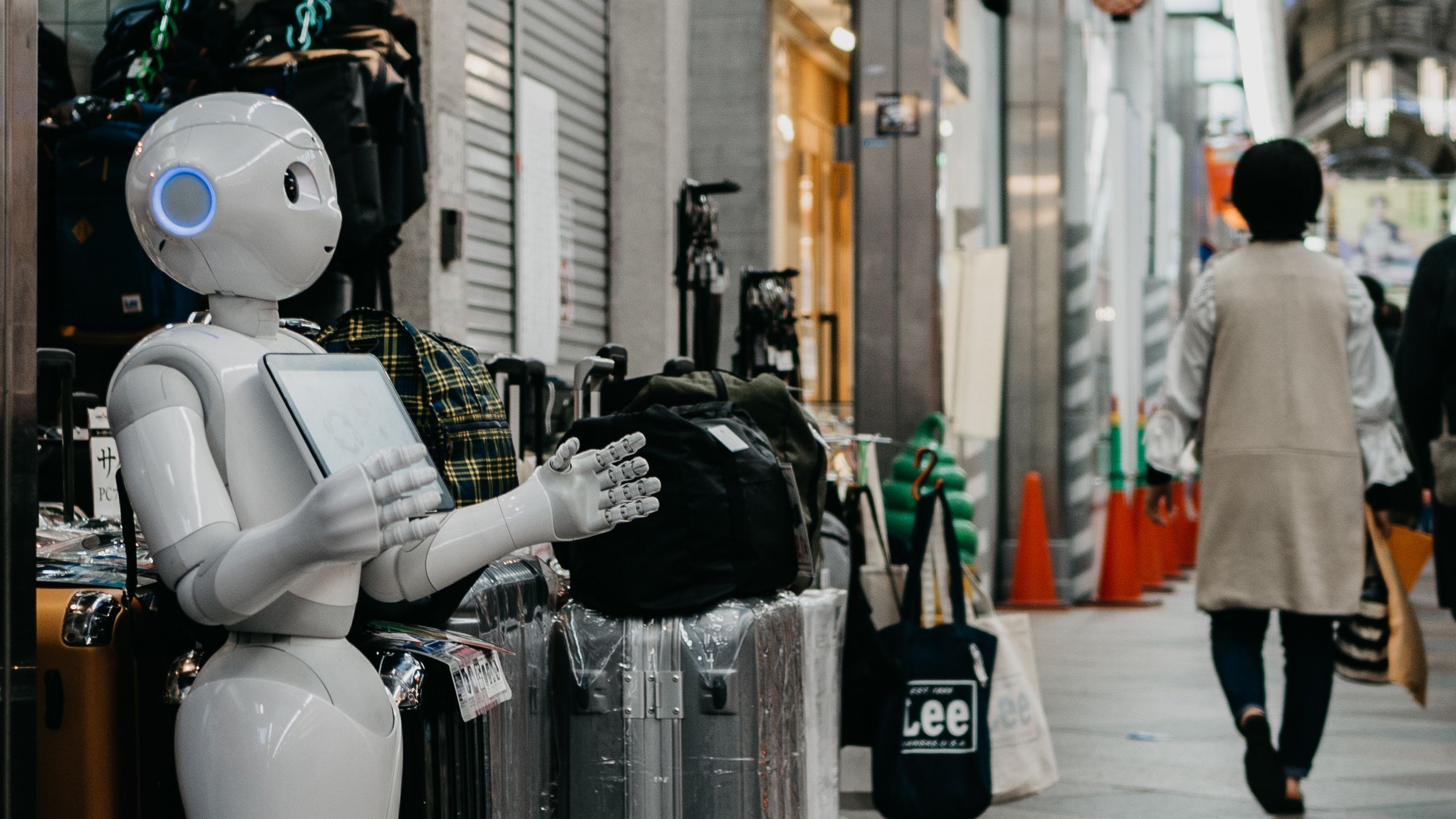'Robots at your service'
Transforming the future of
frontline service

30 June 2019
It’s no secret that the future is set to be robotic. We already have our orders taken at fast-food restaurants by machines; we opt for the self-checkout rather than the nice old lady at the supermarket till; and – whether we like it or not – it’s often a monotone computer-generated voice that greets us when we call a customer service hotline.
Service robots are on the rise and they are set to impact all levels of society, which makes it important to examine the myriad ethical and societal implications of robotics.
Professor Thorsten Gruber, of the School of Business and Economics, is a contributing author on ‘Brave new world: service robots in the frontline’ – the “first conceptual paper that systematically examines key dimensions of robot-delivered frontline service and explores how these will differ in the future”.
The collaborative study, which brought together scholars from several different countries and was led by Professor Jochen Wirtz (National University of Singapore) and Professor Paul Patterson (University of New South Wales), looks at the role service robots may play if expected technological leaps – which include developing better artificial intelligence voice and face recognition – materialise as expected.
The study aimed at providing a definition of service robots and an understanding for which types of service tasks robots may dominate and where humans might dominate.
Professor Gruber, Professor of Marketing and Service Management and Director of the Centre for Service Management, discusses his research with VOLUME and shares his views on the future of service robots in the frontline.
“Between now and 2050 it is quite likely that robots will become available that will be capable of interacting with customers in a natural or almost natural way and we believe they will play a crucial role in the future.”
Professor Thorsten Gruber

What are service robots?
Brave New World defines service robots as “system-based autonomous and adaptable interfaces that interact, communicate and deliver service to an organisation’s customers”.
Even though the first image that may spring to mind is Hanson Robotics’ Sophia, service robots do not have to take human form, says Professor Gruber, and many of us may have already encountered them without realising.
“For us, robots are not just the typical machines that people see in movies – like the Terminator – but interfaces that can sense their environment with sensors, camera, and microphones, especially for voice and face recognition,” he says.
“They make sense of the data they receive and make autonomous decisions and they can learn from encounters and improve their service provision accordingly.
“They will be connected to and part of wider databases that allow them to access customer information – such as purchase history – and they can provide highly personalised and customised service to give customers the impression that they are interacting with a social entity.
“Some companies are already starting to use robots in hotels, airports, and other service industries. However, the robots are still rather limited in their functionality.
“A more impressive example would be Google Duplex, a new technology for natural conversations that can carry out “real world” tasks over the phone.
“Examples on their website show Google Duplex booking a table in a restaurant and an appointment with a hairdresser, they’re very impressive as it is not immediately clear who the robot and who the human is – and I doubt the humans in the examples realised they were interacting with a robot.”
Will robots eventually replace humans in service roles?
“Between now and 2050 it is quite likely that robots will become available that will be capable of interacting with customers in a natural or almost natural way and we believe they will play a crucial role in the future,” says Professor Gruber.
“But one big question is still debatable: ‘Will robots ever be able to feel real emotions and show genuine empathy and concern for customers?’
“There are already robots that give customers the impression that they have feelings, which they haven’t, and which is ethically questionable.
“As it stands, even the best robots do not have emotions. They may be able to detect customer’s emotions and respond to them in a pre-programmed manner, but it is still programmed.”
Professor Gruber says the service sector will be transformed if technology is developed that allows robots to feel emotions.
He says: “If robots were ever able to feel emotions and have a consciousness then yes, in theory, all human service provision could be replaced by non-human frontline staff.
“If we cannot get robots to this stage, then several service tasks would still be provided by humans, particularly services that require emotional and social intelligence or creativity.
“However, although these unique human abilities remain, it is predicted they will become fewer and less pronounced.
“Other academics have predicted that service workers who want to stay in their jobs will have to upgrade their empathetic and intuitive skills as “soft” people skills will be of crucial importance for employability.”
In Brave New World it is suggested rather than one dominating over the other, the future may entail humans and service robots working together in teams.
Professor Gruber explains: “An example in the paper looks at how a medical doctor will have never diagnosed many of the rare diseases, but a service robot will be able to map all patient data and symptoms against its knowledge base and provide probabilities of even the rarest diseases for a doctor to consider and explore further.
“Likewise, a robot may well take blood pressure and assess other patient health indicators and prepare medication while a nurse performs soft skills such as displaying empathy, caring and affiliative communications to reduce psychological discomfort. We see such services are likely to be increasingly delivered by human-robot teams.”
What issues does a rise in robots present?
Professor Gruber’s main contribution to Brave New World was giving an overview of the ethical and social questions surrounding robot-delivered services.
“We think that robotics is likely to touch all strata of society, which makes it important to examine ethical and societal implications,” he says.
“In the paper we discussed issues such as privacy, personal liberty and security. Robots can collect vast amounts of sensitive real-life data therefore the need to be programmed in such a way that they respect the privacy of individuals.
“Robots can be hacked and accessed remotely to cause physical harm and destruction in the home space so there is the danger that criminals may access data and use it to blackmail users.
“Another concern is that government authorities could access any recorded data, which may be an intrusion of individual’s privacy.”
Professor Gruber continues: “Other issues include dehumanization and social deprivation; interacting with robots could dehumanize relationships due to the minimal emotional involvement of robots.
“For example, fully replacing carers with robots could dehumanize care by depriving people of human contact and could be considered a form of cruelty. Even replacing a human cleaner with a robot vacuum cleaner would take the opportunity for an elder to interact with a human being.”
Professor Gruber also explores in the paper how with every newly introduced technology, discussions are fought over how it impacts jobs and wages.
“The increased uptake of service robots in service professions could significantly impact the availability of well-paid jobs and consequently the possibility for service workers to maintain their consumption behaviours,” he says.
“Many academics in this field see great opportunities for humans and machines providing service together, but also warn of a ‘fundamental threat for human employment’.”



“The question that societies will have to answer is how they are going to feel about service robots taking away this self-worth. These are indeed important and difficult questions that societies will have to find answers for in the future. "
Professor Thorsten Gruber

What does the future hold?
“I personally think that several service jobs will disappear, but new ones will be created too – jobs that don’t even exist yet,” says Professor Gruber.
“However, I am concerned that there will be a total net loss of jobs due to the nature of this technological revolution and governments would have to consider providing their citizens with a safety net such as a Universal Basic Income [a fixed amount of money that all citizens would automatically receive and that could be used to cover essential needs].
“Human dignity, self-respect and role in the community are important factors that have to be considered in addition to monetary considerations.
“The question that societies will have to answer is how they are going to feel about service robots taking away this self-worth.
“These are indeed important and difficult questions that societies will have to find answers for in the future.
“Maybe future generations will find meaning in life outside work and for them these issues may not be issues at all. Only time will tell.”
The full ‘Brave New World: service robots in the frontline’ paper can be read and downloaded (Open Access) here.
Photo credits
Franck V. on Unsplash
Lukas on Unsplash
Franck V. on Unsplash

